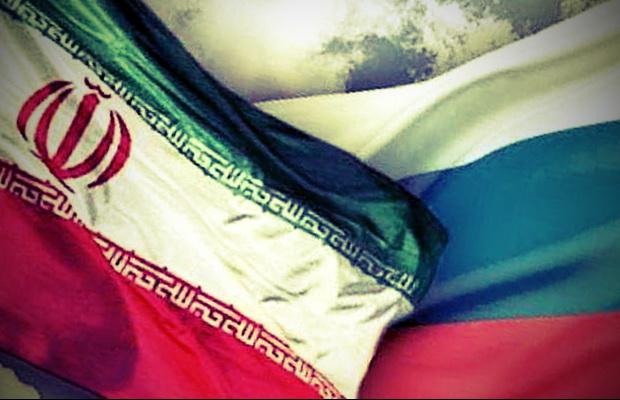
The recent nuclear deal sees the point where Iran has finally agreed to scale back its nuclear program after years of negotiations.
The agreement, between Iran and the P5+1 (the permanent members of the United Nations Security Council – the United States, the United Kingdom, Russia, France and China – plus Germany) plus the European Union, has been hailed as a victory for both sides, but also significant is the important role played by Russia.
Throughout the negotiating process, Russia played a crucial role in ensuring that the deal bore positive outcomes for both the P5+1 and for Iran.
“The Russian negotiating team and nuclear experts have made a significant expert contribution to the drafting of the comprehensive arrangements,” said Russian president Vladimir Putin, “which made it possible to align the different, often opposing views.”
What he is saying is that Russia maintained a much more lenient stance throughout than the West, with Moscow supporting Iran’s nuclear program for peaceful purposes, though restricting itself to stating that Iran should make no effort to develop nuclear weapons. What Putin did not mention was the economic gains for Russia in playing such a role.
The origins of the deal date back to November 2013 when the two sides agreed a Joint Plan of Action (JPA) to restrict Iran’s ability to develop nuclear weapons. These talks continued through 2014 and into 2015, firstly with the Lausanne framework agreement in April and then the July 14 Joint Comprehensive Plan of Action (JCPA) whereby Iran accepted it had to abide by International Atomic Energy Agency (IAEA) agreements.
What Iran gained from this was the P5+1 countries agreeing to lift sanctions once the IAEA submits a report that Tehran is abiding by the deal.
A sanctions free Iran provides the international order far greater opportunities to invest there, with the Iranian economy opening up to trade and investment opportunities. One such area is energy infrastructure, including oil and gas production, where Russia may well find lucrative investment opportunities.
Russia and Iran have a history of nuclear cooperation, and in 2014Moscow committed to constructing new nuclear power plants with pressurized water reactors (PWRs) in Iran. Under the deal, to prevent Tehran from potentially developing nuclear weapons, Russia would supply the uranium to operate the plants then take back the spent fuel produced after reprocessing.
With Iran now allowed, under the deal, to pursue a nuclear program for peaceful purposes, Russia’s Rusatom Overseas, a subsidiary of the State Atomic Energy Corporation Rosatom, which is already venturing into the Middle Eastern nuclear market, will find the Iranian nuclear energy market a much more lucrative sector to invest in.
Iran and Russia are also exploring enhancing their mutual defense cooperation. Even before the JCPA deal was struck, Moscow agreed to deliver the S-300 defense system to Tehran, a system which was previously denied to the Iranians under economic sanctions. The lifting of the ban on the S-300 post April 2015 even before the deal was finalized in July was a clear signal from Russia to Iran that they were ready to enhance ties.
Such cooperation will enable Russia to boost not only the Iranian economy, but also its own, which has also suffered due to the sanctions imposed on it following the Ukrainian crisis.
Russia has also been instrumental in moves to include Iran as a permanent member of the Shanghai Cooperation Organization (SCO), a Eurasian political, economic and military organization founded in 2001 by the leaders of China, Kazakhstan, Krygyzstan, Russia, Tajikistan and Uzbekistan.
As of now, Iran is only an SCO observer, but it has further implications. Over the years Iran has expressed its desire to join the Brazil, Russia, India, China and South Africa (BRICS) forum. Many see its new status at the SCO as a precursor to involvement in BRICS.
In January 2015, Iran’s Ambassador to Russia, Mehdi Sanaei, confirmed that the two countries plan to build a common bank or a mutual account to trade in local currencies - either in Russian rubles or in Iranian rials. This would enable the two to switch to dollar-free trade and economic activities. In 2014, both Russia and Iran also eased visa regulations to help businessmen and tourists.
Another issue that gains benefit from the deal is the fight against the Islamic, State, with Russia, like the US, seeing the Iranians as a trustworthy ally.
In 2014, Russian Foreign Minister Sergei Lavrov, said Iran was a “natural ally” in the battle. This developed a stage further in July this year with Ilya Rogachev, the director of the Russian Ministry of Foreign Affairs Department of New Challenges and Threat Issues, expressing his desire to develop anti-terror cooperation with Iran, including in the Middle East. He also stated that one of the objectives of cooperation between Iran and Russia should be fighting the Islamic State.
Iran and Russia are also cooperating to extract natural wealth from the under waters of the Caspian Sea. In 2014, the Caspian Summit, attended by Russia, Iran, Azerbaijan, Kazakhstan and Turkmenistan (the Caspian five) agreed to cooperate on the issue, including the division of the Caspian shelf.
Another consequence is that Russia’s hand is strengthened in its attempts to convince the US not to deploy its missile defense system in Europe.
Lavrov has already argued that since the issue of a nuclear threat from Iran does not exist, the US does not need the system in Europe. Historically the US argued the system was meant to counter threats from Iranian ballistic missiles, but Moscow maintained its true intent was to negate Russia’s nuclear deterrent.
Mixed reactions in Russia
The deal has faced some mixed reactions back in Russia. Lavrov has supported the deal and called it “encouraging”.
The same response was echoed by Konstantin Kosachev, the chairman of the foreign affairs committee for Russia’s upper house of parliament, who also viewed the deal as “win-win agreement”, stating that it “proves international mechanisms are working”.
Kosachev also said that the deal gives hope to Russia on many other issues including the Ukrainian crisis.
However, others see the deal as detrimental as it could draw Iran closer to the US. Alexei Pushkov, chairman of foreign affairs committee for Russia’s lower house of parliament said it would bear negative consequences.
But Putin, Russia’s most powerful man, believes the deal will bolster Iran-Russia bilateral relations now that sanctions are no longer a limiting factor.
Conclusion
There is little doubt that closer and strengthened Russian-Iran relations could also prevent a pro-American Iran, and this would be strategically and politically favorable for Moscow.
Debalina Ghoshal is a Research Associate with the Delhi Policy Group.








%20resized.png)
